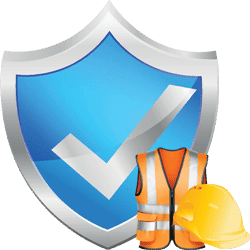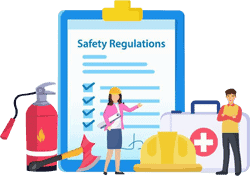 International Standards Organization and what it means to Canadian Businesses
International Standards Organization and what it means to Canadian Businesses
ISO standards are essential in the manufacturing and supply chain industries. ISO certification gives products a quality stamp of approval, ensuring that they meet global standards. This ensures that products are reliable and of consistent quality, no matter where they are in the world. ISO standards are also useful for auditing and quality control purposes. In this article, we’ll discuss what ISO is, what it covers, and how it can help your business.
What is the ISO?
The ISO is a global organization that sets international standards. It was founded in 1947, and today it has more than 1,000 member organizations from around the world.
What does the ISO cover?
 ISO covers a wide range of topics, including but not limited to: production processes; materials handling; quality management systems; product testing methods and procedures; ergonomic design practices; and safety management systems. This means that any business with products or services that need to be shipped internationally can benefit from ISO standards.
ISO covers a wide range of topics, including but not limited to: production processes; materials handling; quality management systems; product testing methods and procedures; ergonomic design practices; and safety management systems. This means that any business with products or services that need to be shipped internationally can benefit from ISO standards.
How can the ISO help Canadian businesses?
One of the biggest benefits of ISO certification is that it gives products a quality stamp of approval. This means that products are reliable and consistent in quality, no matter where they are in the world. This is important for businesses shipping products internationally because it ensures customers have high standards to which they can compare your product. Additionally, an auditing or quality control procedure based on ISO standards can protect your business against fraud or other issues.
What Are the Most Useful ISO Standards?
There are many ISO standards that can help your business, but some of the most useful ones include:
ISO 9001:2009 Quality management system—This standard covers everything from process design to quality assurance methods. It’s a popular certification for businesses because it provides a comprehensive overview of how to manage product quality effectively.
ISO 14001 Environmental management systems—This standard is designed to ensure that companies take environmental concerns into account when designing and implementing their products and services. It covers topics such as waste management, water conservation, and biodiversity preservation.
ISO 22000 Security management systems—This standard covers the principles and practices for protecting company data from unauthorized access or use. It includes provisions for identifying threats and mitigating risks associated with cybersecurity incidents.
What is ISO Certification?
 ISO certification is a quality assurance system that sets the highest international standards for products and services. ISO provides a reliable, consistent quality stamp for products in over 180 countries around the world. This helps businesses ship their products internationally to ensure customers have high standards of product reliability and consistency.
ISO certification is a quality assurance system that sets the highest international standards for products and services. ISO provides a reliable, consistent quality stamp for products in over 180 countries around the world. This helps businesses ship their products internationally to ensure customers have high standards of product reliability and consistency.
 How do businesses become ISO certified?
How do businesses become ISO certified?
There are several ways businesses can become ISO certified. The most common way is through a formal process that involves submitting documentation to an ISO-accredited body. This documentation must meet the specific requirements of the ISO standard being certification and must be verified by an independent auditor. After meeting these requirements, businesses can apply for an ISO certification mark or code which shows their products have met the highest quality standards possible. What are the benefits of ISO certification?
There are a variety of benefits to having an ISO certification. These include:
– Increased consumer confidence in your products and services
– Reduced product quality defects due to inconsistent standards
– Improved business reputation due to credibility and trustworthiness
– Increased export opportunities as customers have higher expectations for product quality
 How Do I Find Out About New ISO Standards?
How Do I Find Out About New ISO Standards?
ISO maintains a website that provides up-to-date information about new ISO standards. This website includes a search engine that makes it easy to find specific information about any given standard. You can also access the ISO Standards Library, which is an online repository of documentation related to all ISO standards.
If you want to certify your products or services with an ISO standard, you’ll need to first identify the relevant ISO standard. You can find this information on the ISO website or through a search engine. Once you have access to the standard, you’ll need to read and understand it in order for certification purposes. This can be done by consulting with an accredited professional who is familiar with ISO standards and certification procedures.
 ISO contributes to all of the Sustainable development goals
ISO contributes to all of the Sustainable development goals
ISO is a partner in the Global Sustainable Management Alliance, which is working to achieve the United Nations’ 17 sustainable development goals. The alliance’s goal is to help businesses become more efficient and green, while also improving their competitive position in the global marketplace. ISO also works with the United Nations Environmental Program to promote environmentally responsible management practices.
ASQ Quality Standards
ISO 9000:2005 is the globally accepted standard for quality management systems. ISO 9000 standards define the minimum requirements for an effective Quality Management System and provide guidance on how to achieve these goals. ASQ’s quality standards are complementary to ISO 9000, providing specific detail on required procedures, processes, and techniques. Both ISO 9001:2008 and ASQ’s current standard, ASQ 9100:2009, are based on the latest edition of ISO 90001:2005.
ISO/IEC 17025
 Role of the Standards Council of Canada
Role of the Standards Council of Canada
ISO/IEC 17025 is an international standard for the management of safety, environment, and quality in software. It covers all aspects of software product development from requirements gathering to release management. The standard is based on ISO 9001:2008 and provides a common framework for organizations regardless of their size or industry. The Standards Council of Canada is a not-for-profit organization that establishes and maintains internationally recognized standards. The Standards Council of Canada mandates includes the development, promotion, and adoption of voluntary consensus standards in the areas of safety, environment, quality management systems (QMSs), software engineering process models (SEPMs), and statistical process control methodologies (SPCMs), and information technology security requirements.
ISO/IEC 17025:2005 provides guidance on how to develop, implement, operate, and maintain a software product quality management system. It is based on ISO 9001:2008 and provides a common framework for organizations regardless of their size or industry.
 Development of international standards
Development of international standards
ISO/IEC 17025:2005 was developed by a working group that was appointed by the ISO TC 171 Working Group on Software Product Quality Management Systems. The working group consisted of representatives from industry, academia, and national standards organizations. The ISO TC 171 Working Group on Software Product Quality Management Systems was created in 2001 to develop an international standard for the management of safety, environment, and quality in software. The group’s first product was ISO 9001:2000.
Examples of best practices in citations for industry standards:
ISO/IEC 17025:2005, “Software Product Quality Management Systems – Guidance,” ISO, 2005.
ISO 9001:2008, “Requirements for Organizations Operating in the Information and Communication Technology Sector,” ISO, 2008. ISO/IEC 24500:2011, “Statistical Process Control – Requirements and Guidelines,” ISO, 2011.
 What is the fundamental objective of ISO standards?
What is the fundamental objective of ISO standards?
ISO standards are developed to meet the needs of global organizations. They provide a common framework for products, processes, and systems from different countries and industries. This allows companies to work together more easily and share best practices.
 Who is ISO suitable for?
Who is ISO suitable for?
ISO standards are best suited for organizations of all sizes and industries. They’re beneficial for companies that produce software, hardware, or any product. Click to find out more on getting started
We do not manufacture; does that mean ISO is not relevant for us?
Not at all. ISO standards can be very helpful for companies that produce products, regardless of their manufacturing status. For example, a company that produces software may benefit from using ISO standards to ensure the quality and safety of its products.
 What does working with an organization that has an ISO Standard mean?
What does working with an organization that has an ISO Standard mean?
ISO standards can help your organization to improve its quality and safety procedures. They can also provide you with a framework for measuring the effectiveness of your efforts. In addition, working with an organization that has an ISO standard can help you to gain credibility with your customers and partners.
Is having an ISO certification mandatory?
No, ISO certification is not mandatory. However, it can be very advantageous for your organization to have one. Certification can provide your customers and partners with assurances that you’re meeting the highest standards. It can also help to improve your reputation in the marketplace.
 If I can’t just buy a certification, what is involved in getting set up?
If I can’t just buy a certification, what is involved in getting set up?
There is no one-size-fits-all answer to this question since the process of getting set up with an ISO certification will vary depending on the organization and its specific needs. However, in general, it can involve taking a course or completing an assessment. ISO standards are a set of internationally recognized quality guidelines. ISO is an international organization that sets and manages worldwide quality standards.
ISO 9000:1994 defines nine management system requirements for companies manufacturing products or providing services. ISO 9001:2008 establishes the principles and framework for quality management systems in organizations operating globally.
Resources for ISO 9000 and Other Standards
https://www.iso.org/
https://www.iso-9000-2008.info/
 Why do companies have to comply with international standards like these, anyway?
Why do companies have to comply with international standards like these, anyway?
There are a number of reasons. First, international standards can help to ensure that your products or services are quality controlled and meet the same high standards across different countries. This can minimize the chances of customer confusion or frustration. Second, complying with international standards may give you an advantage in the marketplace because customers will know that you’re committed to providing quality products and services. Finally, working within internationally recognized guidelines can help to foster goodwill among your partners and customers.
 What is the pre-requisite for an ISO 27001 certification?
What is the pre-requisite for an ISO 27001 certification?
There is no one-size-fits-all answer to this question since the process of getting set up with an ISO certification will vary depending on the organization and its specific needs. However, in general, it can involve taking a course or completing an assessment. ISO 27001:2013 establishes mandatory requirements for organizations whose activities may impact the confidentiality, integrity, and availability of information systems.
 What are the benefits Of ISO 14001 Certification?
What are the benefits Of ISO 14001 Certification?
ISO 14001 is a quality management system standard designed to help organizations meet the environmental challenges of their business. By implementing ISO 14001, businesses can reduce waste, conserve resources, and protect the environment. They can also improve customer satisfaction through reductions in health and safety risks, as well as emissions from operations.
What are some other standards that companies may need to comply with?
ISO 9000:2008 establishes principles and frameworks for quality management systems in organizations operating globally. ISO 9001:2008 specifies requirements
Standards for software quality: Software Engineering
ISO/IEC 9126:2009 establishes general requirements for the management of software quality. ISO/IEC 14000:2004 specifies requirements and guidelines for improving the quality of software products.
ISO 31000-2:2005 provides a framework for audit planning and implementation, focusing on information systems auditing.
ISO 27001:2013 sets mandatory requirements for organizations whose activities may impact the confidentiality, integrity, and availability of information systems.
 Which are better: national or international standards for quality assurance?
Which are better: national or international standards for quality assurance?
There is no easy answer to this question. Some people argue that national standards are better because they are more tailored to the specific needs of a given organization. Others believe that international standards provide a better overall quality assurance framework since they have been tested and proven in more than one country.





